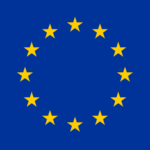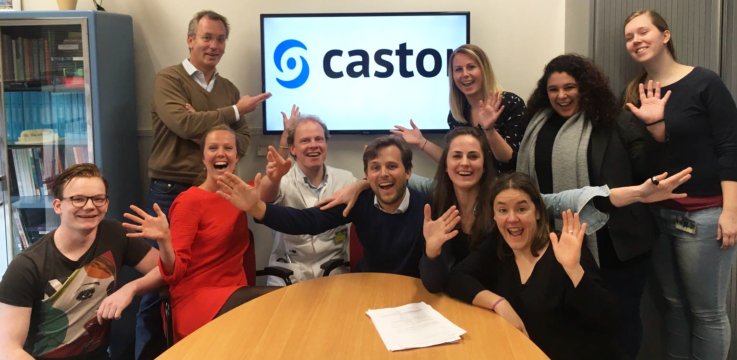Did you know that more than 26000 users are already registered in Castor? If all Castor users would come together to one giant meetup, it would be the size comparable to the population of San Marino. We are proud to see so many researchers forming a community of dedicated and forward-thinking professionals. We hope that our platform will enable researchers to collaborate more closely and share data and projects with each other, thus increasing their individual impact.
In the beginning of 2018, we introduced the Castor Research Award to encourage such sharing of research projects, ideas and innovation among the Castor community and to reward the most promising project being conducted in Castor. We want to thank everyone who participated and submitted their research summaries – all of them were a delight to read. At the end of this month, at our office in Amsterdam, all nominees will be pitching their research projects and sharing their (initial) results. Our jury of experts will select the most promising one and the winner will receive a personal award of €3000.
Here is an overview of all the 9 nominated projects and the team members who submitted them:
- Effectiveness of a personalized endoscopic surveillance protocol for patients with serrated polyposis syndrome – Arne Bleijenberg, Academic Medical Center Amsterdam, Netherlands. In this study, an endoscopic surveillance protocol with a decision algorithm for patient follow-up was evaluated with the objective to prevent bowel cancer in patients with serrated polyposis syndrome.
- PPI Shine Again: A rusty treatment for an iron ailment, contrasted by state of the art data management – Annelies van Vuren et al, University Medical Center Utrecht, Netherlands. This project investigates the efficacy of PPIs in stopping the absorption of iron and thereby preventing, or even treating secondary hemochromatosis in patients with non-transfusion dependent hereditary anemia.
- Postoperative Outcomes within an Enhanced Recovery After Surgery (POWER) – Javier Ripollés Melchor et al, Infanta Leonor University Hospital, Madrid, Spain. A study focusing on the incidence of postoperative complications following elective lower gastrointestinal surgery with an enhanced recovery after surgery (ERAS) protocol.
- The Effect of Leukocyte Dna mEthylation and micRoBIOME diversity on host defense mechanisms during community-acquired pneumonia (ELDER-BIOME) – Bas Haak and Xanthe Brands, Academic Medical Center Amsterdam, Netherlands. A study exploring the link between DNA methylation, microbiome function, and immune responses against community-acquired pneumonia.
- Feasibility and clinical relevance of Virtual Reality Exposure Therapy in sepsis survivors Hans Vlake, Franciscus Gasthuis & Vlietland, Netherlands. This study is investigating whether virtual therapy ameliorates post-intensive-care-related sequalae in sepsis survivors, especially the mental health component.
- Reduction of intravenous Antibiotics In Neonates (RAIN) – Fleur Keij, Erasmus MC-Sophia, Netherlands. A study evaluating the safety and efficacy of an early intravenous to oral antibiotic switch in neonates at risk for sepsis. If proven to be safe and efficacious, neonatal antibiotic switch therapy could have a major impact on neonatal well-being, mother-to-child bonding and costs.
- Mobile health in grown-up congenital heart disease – Mark Schuuring, Amsterdam UMC, Netherlands. A study investigating a new tele-monitoring program for adult patients with congenital heart disease through the use of innovative hardware and software.
- The effects of inhaled delta‐9‐tetrahydrocannabinol (THC) and cannabidiol (CBD) on pain relief and subjective effects in fibromyalgia patients – Tine van de Donk, Leids Universitair Medisch Centrum, Netherlands. A study of the effects of THC and CBD on pain relief in fibromyalgia.
- EfFECTS study – Efficacy of FDG-PET in the Evaluation of Cytologically indeterminate Thyroid nodules prior to Surgery: a multicentre cost-effectiveness study – Lisanne de Koster, Radboud University Medical Center, Netherlands. A study investigating the effects of functional imaging techniques on reducing unnecessary surgical interventions and the burden of healthcare costs in patients with thyroid nodules.
We look forward to meeting all of these researchers and hearing more about their projects during the finale! We hope to organize something similar in the future.


